Best OKR software for startups
OKR for Startup: Streamline Goal setting and Boost Productivity with our Top Picks for OKR Software for startups. Achieve your Business Objectives like a pro today.
OKR, or Objectives and Key Results, is a goal-setting framework used by companies to define and track progress toward their most important objectives. It was popularised by tech giants like Google and Intel and has since been adopted by startups and organisations across various industries. OKR software helps companies implement and manage the OKR framework, providing goal-setting, tracking, and reporting features.
For organisations, 1-5 years old, OKR softwares can be especially useful in aligning team efforts and prioritising tasks. As a startup grows and evolves, it’s important to clearly understand what the company is working towards and how individual contributions fit into the bigger picture. OKR softwares for startups helps establish their vision and mission, set departmental goals, and track progress toward achieving them.
Features of OKR software for startups
Vision and Mission
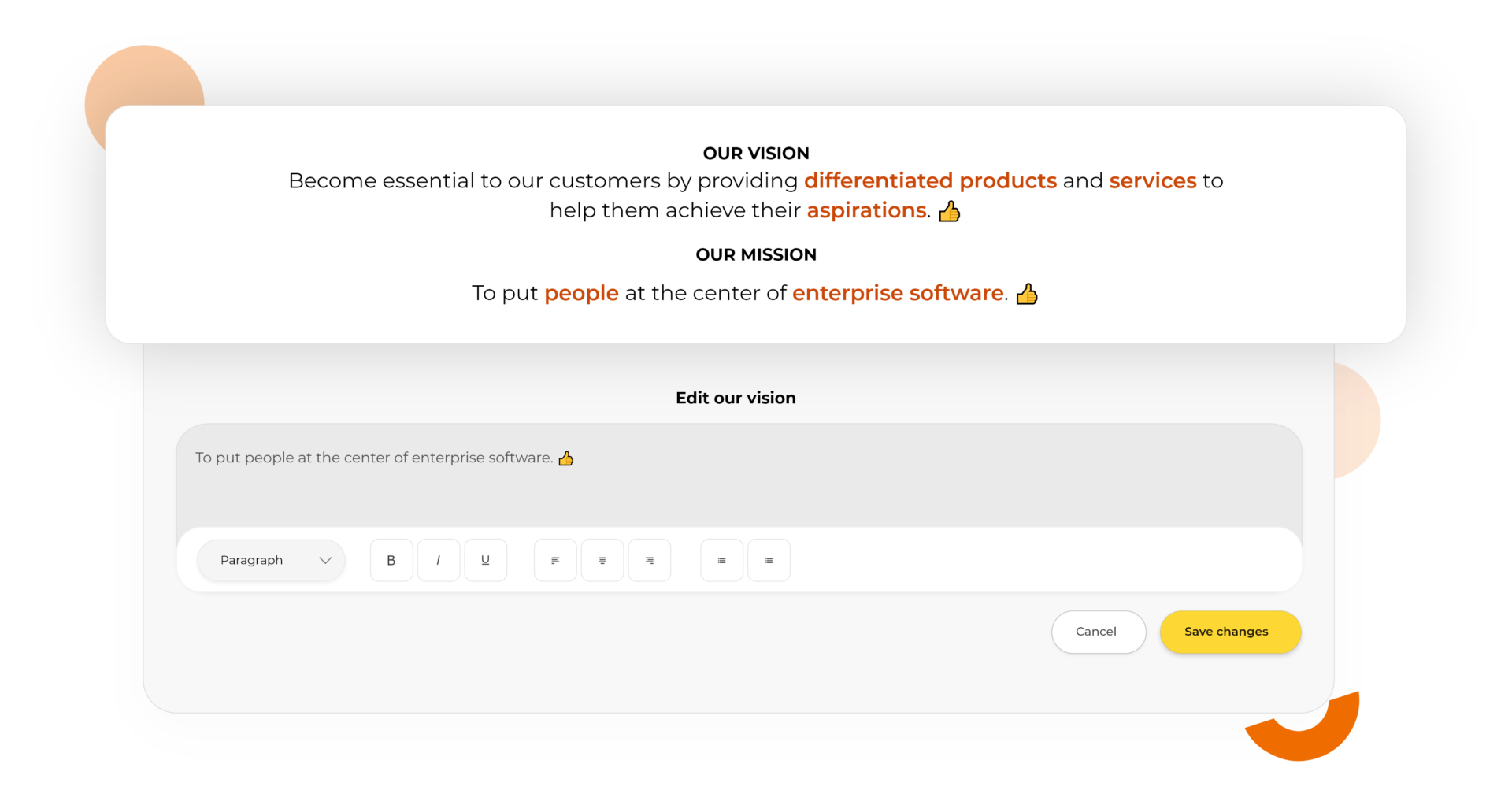
Department OKRs
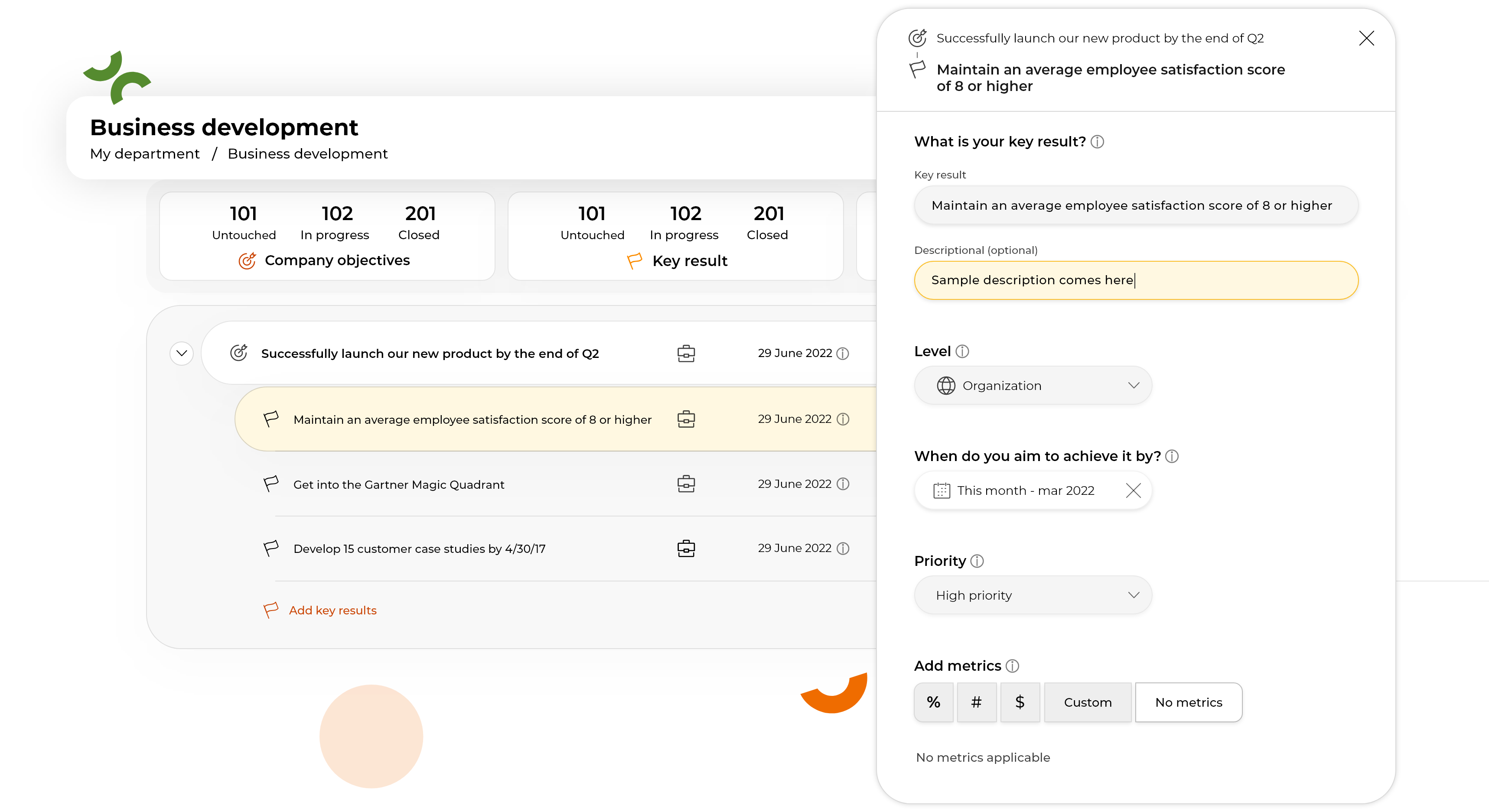
Committed and Aspirational OKRs
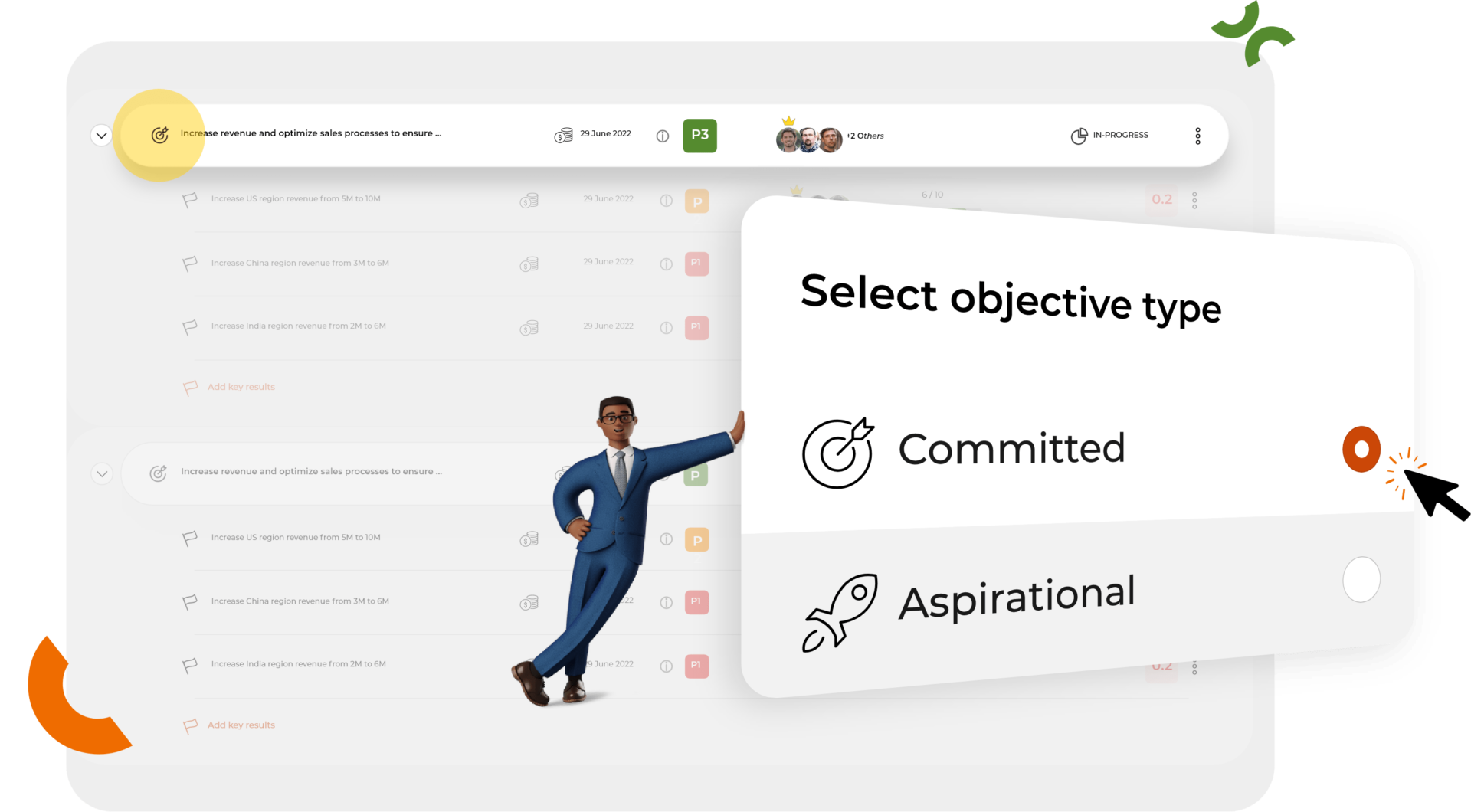
Check-in and Reminders
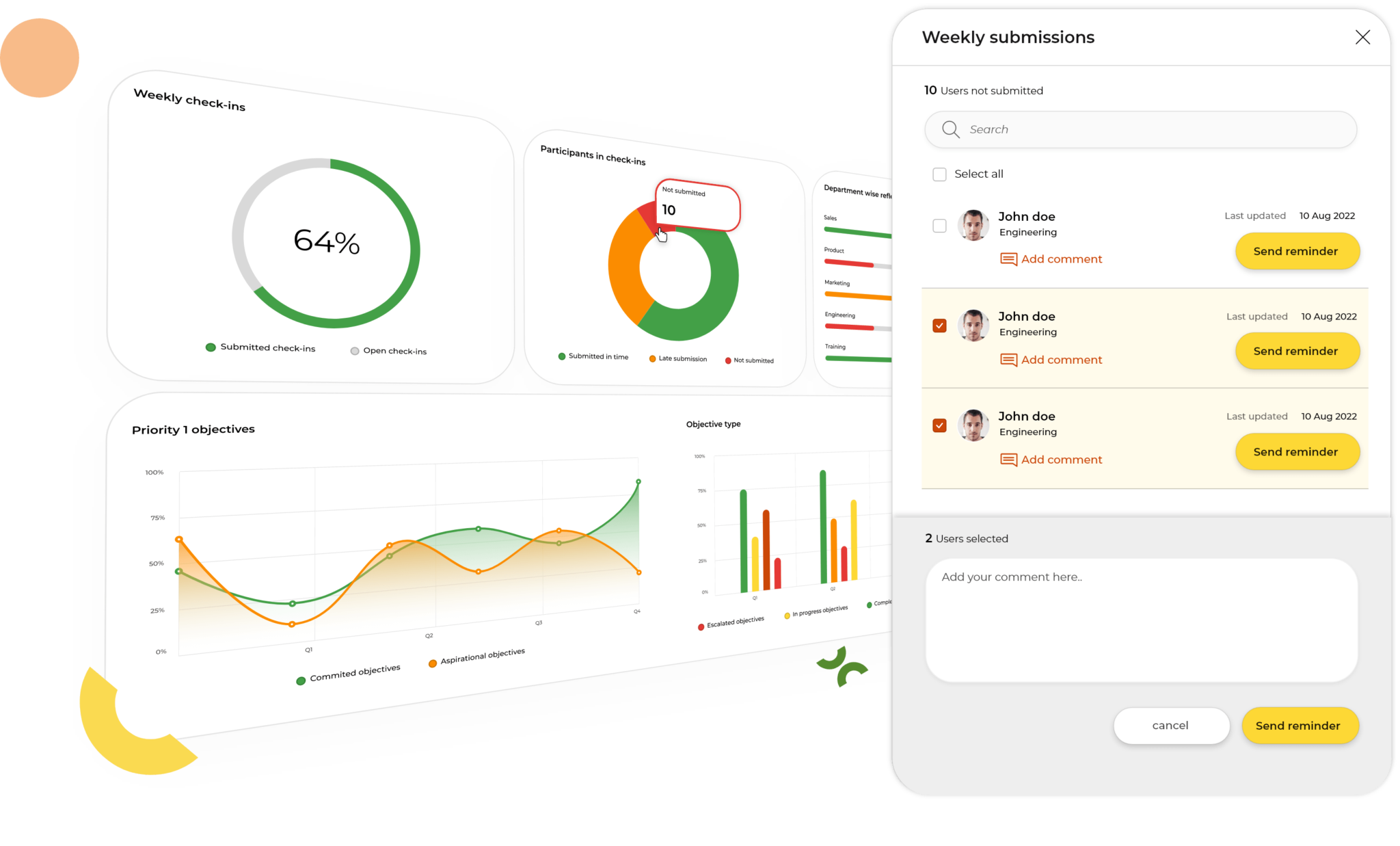
Dashboard & Analytics
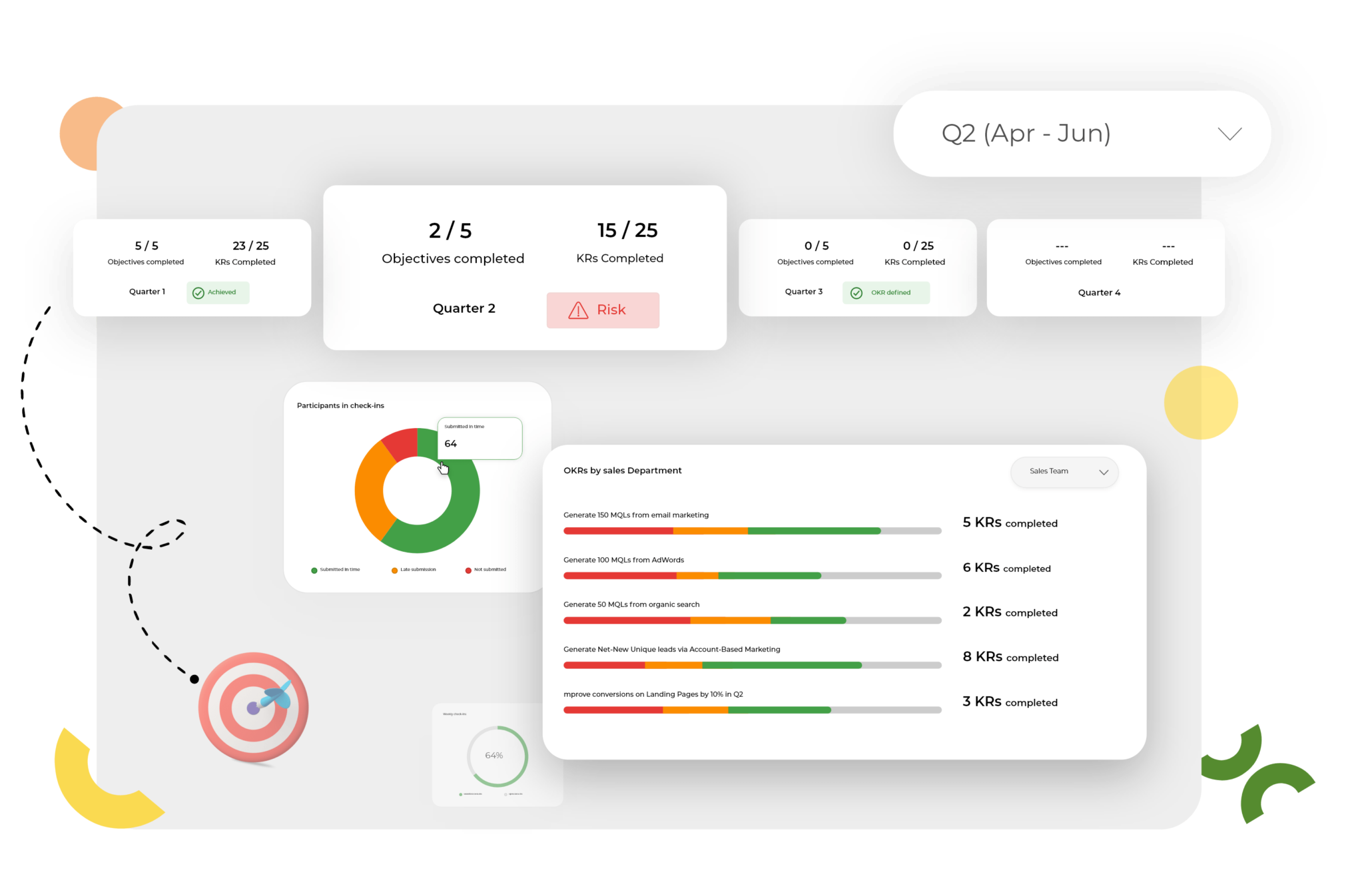
OKR examples for start-ups
Here are a few examples of startup OKRs that might be relevant for organisations that are 2-5 years old:
Objective: Improve user onboarding experience
Key results:
Objective: Boost monthly revenue
Key results:
Objective: Enhance product performance
Key results:
Objective: Expand customer base
Key results:
Objective: Enhance product quality
Key results:
Objective: Improve team productivity
Key results:
Objective: Increase brand awareness
Key results:
OKR cycle for startup
A startup’s OKR (Objectives and Key Results) cycle typically lasts for three months. It involves setting clear objectives that align with the company’s vision, defining measurable key results, and tracking progress. Regular check-ins and end-of-cycle assessments drive focus, agility, and strategic alignment to foster growth and innovation.3 Steps of OKR Cycle for Startup
- Creating OKRs
- Aligning OKRs
- Achieve The Objectives
Why choose 10xWinners OKR software for startups?
10xWinners is an OKR software designed specifically for startups. It offers the above-mentioned and additional features such as team collaboration and integration with other productivity tools. Its user-friendly interface makes it easy for startups to start with OKR, and its comprehensive feature set allows teams to track progress and make data-driven decisions. As one of the best OKR softwares, it helps teams align their efforts, focus on the most important tasks, and track progress toward achieving their goals. Whether your startup is looking to increase revenue, launch a new product, or expand into a new market, 10xWinners will help set the right goals with minute customizations tailor-made for your requirements.Objective and Key Results (OKR) Insights 2023
Frequently asked questions
The OKR goal-setting method helps the team prioritise tasks based on commonly aligned goals. It helps the organisation to stay focused on one goal through the different levels of their employees.
Startups should consider using 10xWinners’ OKR software because it is the best OKR software designed for small and medium sized companies, it is simple to use and employee adaptation is faster. It help them set clear, measurable goals and track progress toward achieving them. The software includes real-time dashboards and collaboration tools, making it easier for teams to stay aligned and on track.
It is generally recommended to set OKRs for startup businesses every quarter. This allows flexibility and the ability to adjust and pivot as the business grows and evolves. Setting OKRs too frequently may not allow enough time to achieve them, while setting them too infrequently may not provide enough direction and focus for the team. By setting OKRs every quarter, startups can continually reassess and set new goals that align with their overall mission and vision.
OKRs (Objectives and Key Results) can be an effective tool for startups to set and track progress of specific goals. By setting clear and measurable objectives, startups can ensure that their efforts focus on achieving the most impactful results. The key results component helps to ensure accountability and allows for ongoing tracking and evaluation of progress. Overall, OKRs can be a useful tool for startups to stay focused and aligned toward their goals as long as they are implemented and utilised effectively.
Successful OKR implementation for startups involves several key elements such as Clear Objectives, Measurable Key Results, Alignment, Regular Updates, Adaptability, and Transparency.
To write effective OKRs for startups:
OKRs force startups to prioritize by setting clear objectives and key results. They help teams focus on the most critical tasks by defining what success looks like and tracking progress. By regularly reviewing and adjusting OKRs, startups can ensure that their efforts are directed toward high-impact objectives.
Leadership plays a critical role in OKR adoption for startups. They must:
OKR software provides a centralized platform for setting, tracking, and managing OKRs. It helps startups by:
Yes, there are numerous success stories of startups that have achieved significant results using 10XWinners OKR software. These stories often highlight how OKRs helped them scale, improve productivity, and achieve ambitious goals. Many of these case studies can be found on the websites of OKR software providers or in relevant business publications.
We offer free trials or demos. You can visit our website 10XWinners.com to explore their offerings and request a trial or demo. This allows startups to assess whether a particular software solution meets their needs before committing to a subscription.
10xWinners Insights
Contents
